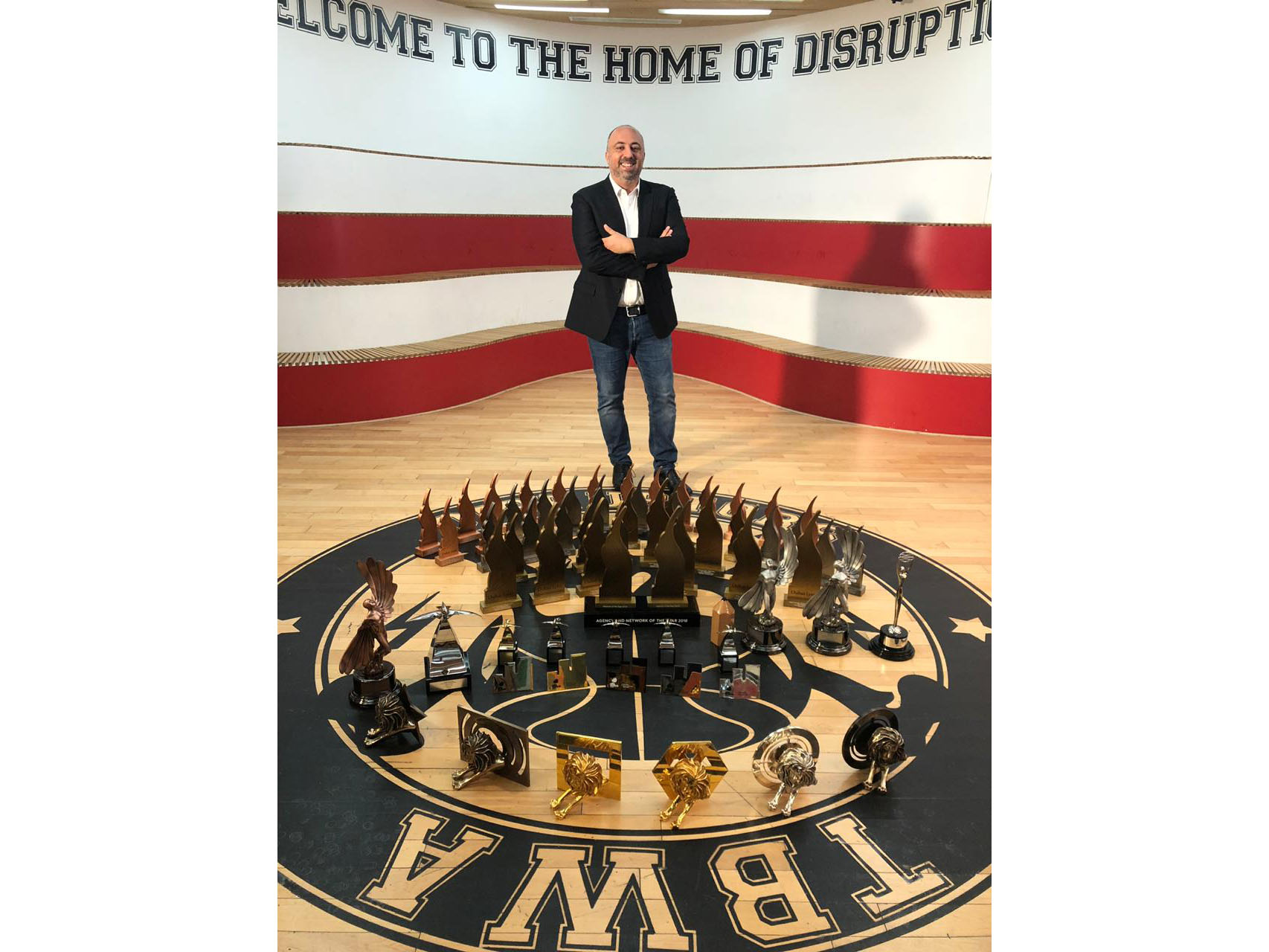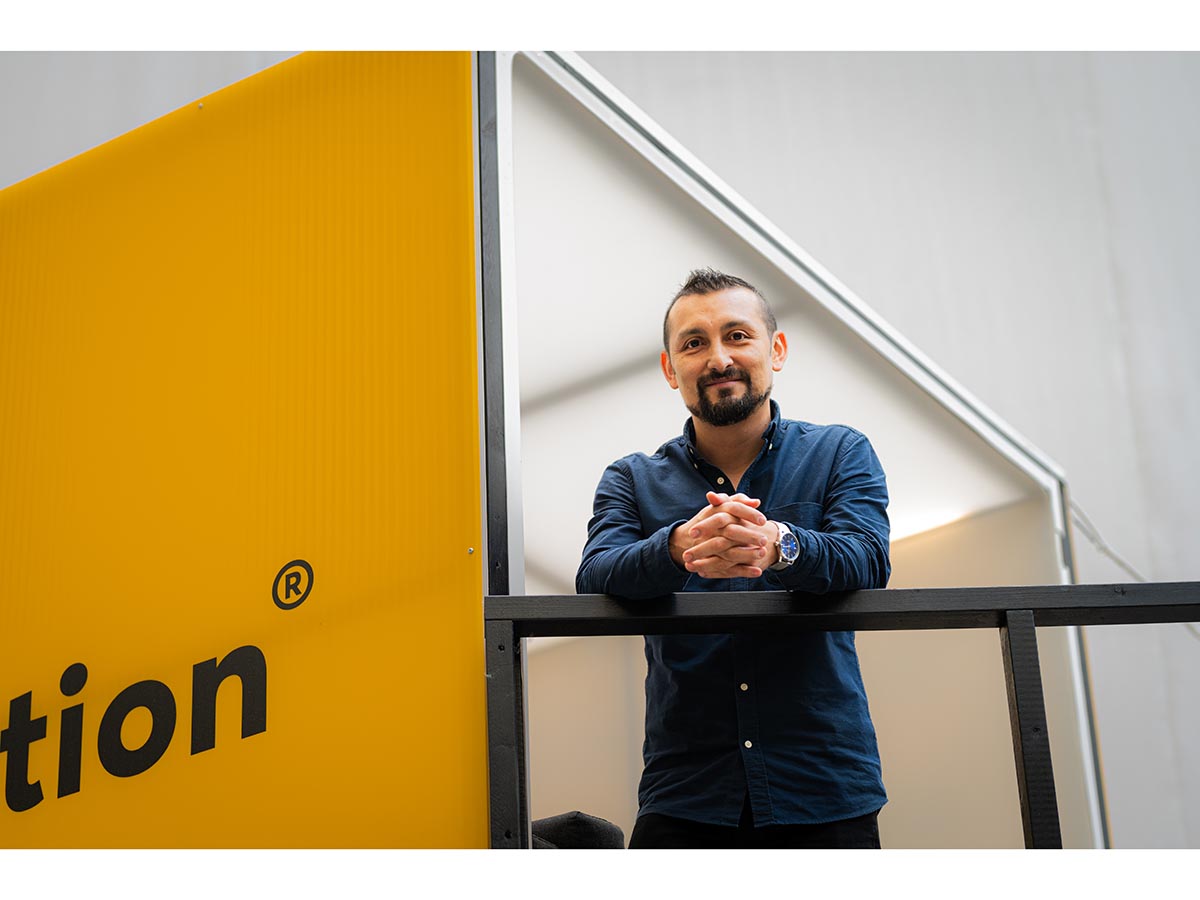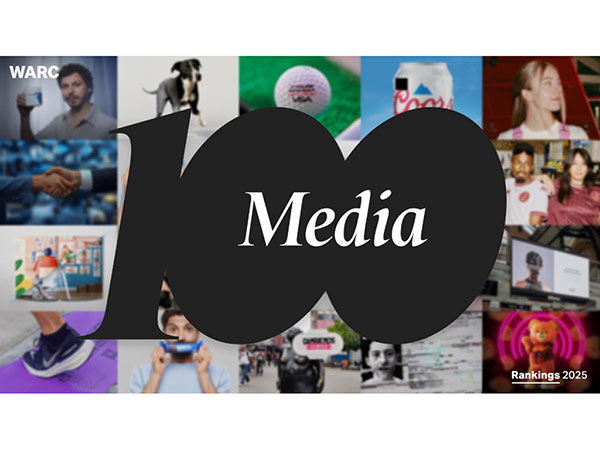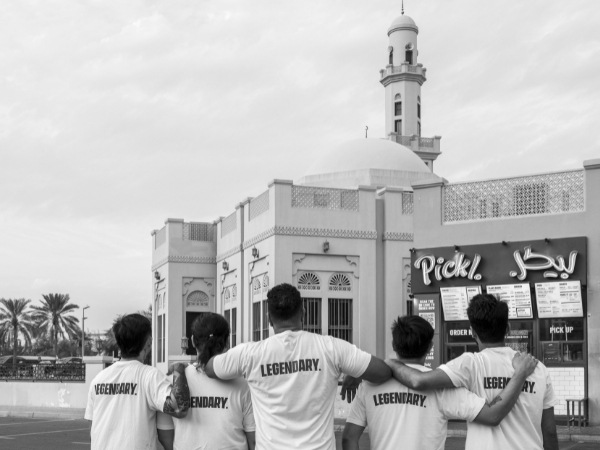News - Advertising
Reda Raad on Advertising: 'The race to build the companies of the future has begun'
by Ghada Azzi
May 18, 2022

Everyone seems to agree that the advertising world is not what it used to be. Do you long for the old good days – the golden age – of advertising?
No, not at all. That’s akin to giving in to nostalgia. I’ve always said – and will continue to say –there’s never been a better time to be in advertising.
Why do you think so?
Because we are in the business of ideas. And there has never been a greater or vaster arena for those ideas. It’s like looking at the world in 4D. Brand disruption and creative innovation have been given a whole new lease of life by technology. We’ve also been provided with a heightened opportunity to make a very real difference in the world.
ON THE CHALLENGES AHEAD
What do you think is going to be the main challenge for agencies in the next two years?
The challenge is the same as it’s always been. To remain relevant in a rapidly evolving world. To ensure that we are involved in those conversations that impact a company’s marketing strategy and capture the consumer journey. For this to be achieved, clarity of vision is essential.
It’s a far more complex world. How is the agency changing to face new challenges?
We’ve all got to recognise that there’s no such thing as certainty anymore. Change is constant. That’s why we’re always customising, obsessing over the creative product, and making sure that we have something that works in the best possible way that it can. There’s never a sense of rest. That means reinventing how we work and the products we offer, recognising the centrality of creativity in building businesses, shifting from service to strategy, and embracing the business of brand.
Is there still a future for the big agencies? Or are the small agencies winning the evolutionary race? Can the dinosaurs still compete with the new creatures on the block who seem faster, fitter and cheaper?
There’s room for everyone. It’s not either/or. They’re just two different approaches to the business of advertising. Besides, we should be asking how we can create truly remarkable and impactful work, not pondering whether there’s a future for us. Agencies of all sizes proved their worth during the pandemic. Our teams drove business impact when our clients needed it most and we built stronger and more dynamic relationships. Now is the time to build on those partnerships and the value proposition of agencies.
“We are in the business of ideas. And there has never been a greater or vaster arena for those ideas. It’s like looking at the world in 4D.”
ON ALL THE CHANGES…
Is the digital age one of the really positive things that’s happened in the industry?
Of course. Tech has completely redefined the way we work and continues to do so. I mean, it’s impossible to imagine a world without it.
Another thing that has changed is that the agency sector is now more about digital, data and analytics. It’s less reliant on people and more reliant on technology. What’s your take on this?
Sure, technology continues to change the way we work, but our industry has and always will be about people. They are at the heart of everything we do. Remove the human element and you’d hollow out the agency.
What trends in advertising do you find most interesting nowadays?
For me the most important trend is agency-based. It’s the fact that the relationship between employer and employee is changing. It is therefore our job to satisfactorily respond to that shifting dynamic. What will that entail? It’s hard to tell entirely, but it will involve the creation of a work/life balance that gives fulfilment back to those who enable our agencies to thrive. It will also mean nurturing and growing entry-level talent, providing new challenges for senior members of our team, and providing coaching, empowerment, trust and inspiration. If we get all these things right, we will remain employers of choice for a whole new generation of talent.
What would you say is advertising’s biggest problem today?
The fact that people, in general, hate advertising.
In what ways do you think the industry can change for the better?
We have to do much better when it comes to our own people. If we don’t, we’ll lose our greatest asset – our talent. That means flexible working patterns, less hours, and the end to a culture of lost weekends. We also have to ensure that we provide growth and learning, a safe environment for our people to be themselves, a culture of collaboration, a sense of belonging, and the opportunity to shine and grow as individuals.
If you’d like to see one change made across the whole spectrum of the ad business, what would it be?
I think we could all do with a bit more industry-wide collaboration. We can only truly succeed as a sector if we are united in our mission to create an unbeatable world-class hub here in Dubai. We’re well on the way, of course, but I think we’ve lost sight of the path in the past few years, especially when it comes to embracing best practice, sharing knowledge, and working in unison to attract the very best graduates to our industry.
What is the single most significant change you need to make in your agency in the next 12 months?
I said this in the main interview, but it’s really about that move from success to significance. Everything comes down to the question of what kind of agency we want to be and what kind of leader I hope to become. It’s a work in progress, but it’s time to disrupt how we work and interact with each other on a more profound level.
“I think we could all do with a bit more industry-wide collaboration. We can only truly succeed as a sector if we are united in our mission to create an unbeatable world-class hub here in Dubai.”
ON CREATIVITY
BBH founder Sir John Hegarty has warned recently that agencies’ craft skills, from copywriting to art direction, are in decline. What’s your take? Do you feel that in this technologically obsessed age, creatives have lost touch with their artistic side?
No, far from it. It’s just that the craft skills may have changed. You only have to look at the attention to detail, the dedication, and the pride in what our people do to know that craft is as good as it’s ever been. Maybe the crafts associated with print have declined, which is primarily what he’s referring to I think, but there’s every reason to be excited when you look at film and digital.
How do you feel about all this hype around the metaverse, NFTs and the tremendous possibilities for the industry? Are you prepared to immerse and embark TBWA\RAAD’s clients in this new space?
Brands and media owners are already entering this space, but whether we take our own clients there will depend on suitability. If it’s not the right fit, we won’t force it. Just because the world is heading into the realm of sci-fi, where blended reality provides a seemingly unending array of possibilities, doesn’t mean we should leap in head first without a second thought. But as we step into this increasingly complex future, the ability of brands to capitalise on any form of blended reality will depend on creativity, technology and data. Capabilities that are hot-wired into any agency worth its salt.
It has become commonplace in the advertising industry to use creativity-award-show prizes instead of gross income figures to attract new clients. Therefore, achieving a top creativity ranking and winning creativity awards have become high priorities in the advertising industry. How do you explain this? Have awards become the ultimate benchmark nowadays?
Awards are one way of proving an agency’s worth. Of proving excellence. Research has consistently shown that creative campaigns are, on average, 10 times more effective. However, brands will tell you that awards are perhaps their least favourite criteria for evaluating an agency. The capacity to understand consumers, the ability to generate insights, the ability to grow market share, the value of ideas – these are what agencies are judged on. The real question for agencies is whether awards translate into commercial success. Because if they don’t, well, that’s a hell of a lot of money to waste on something that has a debatable return on investment.
What would you say is the price to pay for being at the top of the industry?
On a personal level or as an agency? Personally, it’s the responsibility that sometimes weighs heavy. On an agency level, the pressure to constantly evolve and to push the boundaries. There’s never a sense of rest. But that’s the price of ambition.
“The race to build the companies of the future has begun and one of the keys to winning that race is being faster than everybody else out of the blocks.”
ON PASSION AND CULTURE
While big agencies often have more resources, it is believed they simply cannot produce passion the way a boutique agency can. Big company employees have a tendency to advance as individuals. Smaller company employees churn to keep an entire organization afloat. So you’ll often find a level of focus and enthusiasm at a boutique you might not find at a larger agency. What’s your take?
I couldn’t disagree more. Culture is the glue that binds people together, and that glue is dependent on values, ethics and shared experience. It’s not dependent on the size of an agency. The nature of that glue is changing, however. We’re moving beyond a sense of the collective towards a wholehearted embrace of the individual.
In short, what is a good company culture to you?
It’s the mentality of wanting to consistently produce great creative, of growth and learning, of providing a safe environment to be ourselves, a culture of collaboration, a sense of belonging, and the opportunity to shine and grow as individuals.
How can workplaces across the MENA region become more inclusive? And what are you as a network agency doing in this regard?
We are in the business of people and that means reflecting the diversity of the markets in which we operate, championing both equality and inclusion, and listening when new employees come through our doors. It also means consistently evolving our employment strategy. In the past year or so we have launched a 24/7 counseling initiative, introduced flexible working hours, and given our employees the freedom to work from home for a month during the end-of-year holiday season. All of this helps to encourage a more diverse workplace.
ON TALENT
Companies retooling for today’s changing world worry about successfully recruiting the right talent. Are you facing such an issue? Do you think there's a serious talent crunch nowadays in the Arab world? Otherwise, how do you explain why many recruits come from outside the region, especially in the creative department—but not only? Is there extra value into going the extra mile?
Success attracts talent, so we don’t necessarily have an issue recruiting. Plus, Dubai is a global creative hub, so it’s only natural that it should attract talent from across the world. New York and London do exactly the same thing. But the agency of the future will have to be smarter, not just in recruiting and retaining a diverse and strategic range of talent, but in evolving its systems and offerings.
What attributes would make someone an ideal TBWA\Raad hire?
I love people who are driven and want to prove to the world they are talented, and it’s up to us to identify them and to give them the platform and the space that they need to shine. If you don’t give them that, they’ll leave. You have to invest in them, nurture them, and encourage them to be more than they are expected to be. It’s no longer a one-dimensional working world.
Given the way the industry has changed over the past decade, what are you looking for now in your next generation of leaders/managers?
Leadership from the front. The race to build the companies of the future has begun and one of the keys to winning that race is being faster than everybody else out of the blocks. But also we have to recognise that the days of single format leadership are numbered. That’s why multi-dimensional management has to be embraced.
If you had to do it all over again, what advice would you give the earlier version of yourself?
To spend more time with the people you love. I regret not spending enough time with my children and being too engrossed in work. Losing sight of the important things in life. I’d also tell myself to be kinder to people. To not sweat about the small stuff.



,_Cem_Topçuoğlu_(International_President_of_TBWA),_Ramzi_Raad_(Chairman).jpg)










